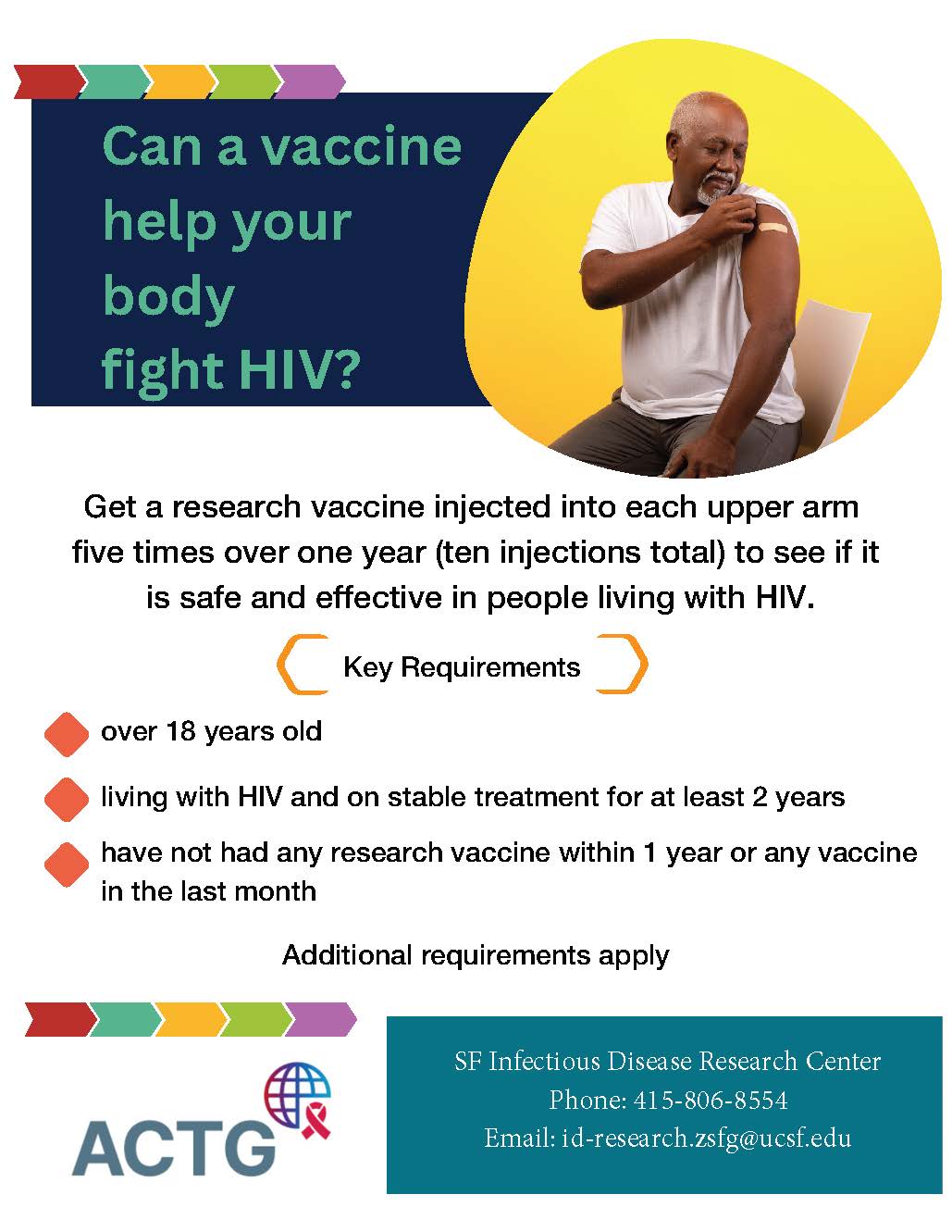Safety and Immunogenicity of Stabilized CH505 TF chTrimer Vaccination in Adults Living with HIV-1 on Suppressive Antiretroviral Therapy
 Brief Description:
Brief Description:
This study is looking to see if an investigational anti-HIV vaccine is safe and well-tolerated in people living with HIV. The study is also trying to find out if the vaccine can help the immune system work against HIV. It is given as one injection, similar to a flu shot, in each upper arm five times over one year (ten injections total). Study participants will have a 2 in 3 chance of receiving the active vaccine and a 1 in 3 chance of getting a placebo (looks like the vaccine but contains no active medicine). A computer will assign you to one of the groups and neither you nor the study staff will know which group you are assigned to.
Major requirements for entering the study (things that must be true for you):
- Persons aged 18 years and older living with HIV-1
- On stable HIV treatment for a minimum of 2 years
- Current CD4+ cell count ≥200 cells/mm3
- HIV viral load of <50 copies/mL currently and for the past year
- No current Hepatitis B or C infection
- Agree to use effective birth control during most of study if possible to become pregnant or cause a pregnancy
Events or conditions that would prevent you from participating (things that cannot be true about you):
- HIV-related opportunistic infection or cancer within the last 5 years
- Currently pregnant or breastfeeding
- Past or present immune system disorders other than HIV
- Use of certain medications (to be reviewed with study staff)
- Current Hepatitis C treatment
- Receipt of any anti-HIV vaccine within 1 year
- Receipt of any vaccine within one month
- Receipt of any anti-HIV antibody treatment within 2 years
Study Activities:
There are 13 visits over 76 weeks. Blood draws will be done at all visits. At some visits, urine pregnancy testing is required for participants who are able to become pregnant. At five visits, the vaccine or placebo will be injected into the muscle of each upper arm. Participants will keep a symptom and medication diary for ten days after each vaccine dose. Study staff will contact participants by phone 1-2 days after each vaccine dose.
At three visits, a leukapheresis will be done. Leukapheresis involves taking blood from a vein in one arm, passing it through a machine that removes some of the cells, and returning the remaining blood back into a vein in the other arm.
Duration of Study:
Participants will be on study for about 1.5 years (76 weeks).
Contact information:
Clinical Research Coordinator: Veronica Viar
Email: [email protected]
Phone number: 415-806-8554
